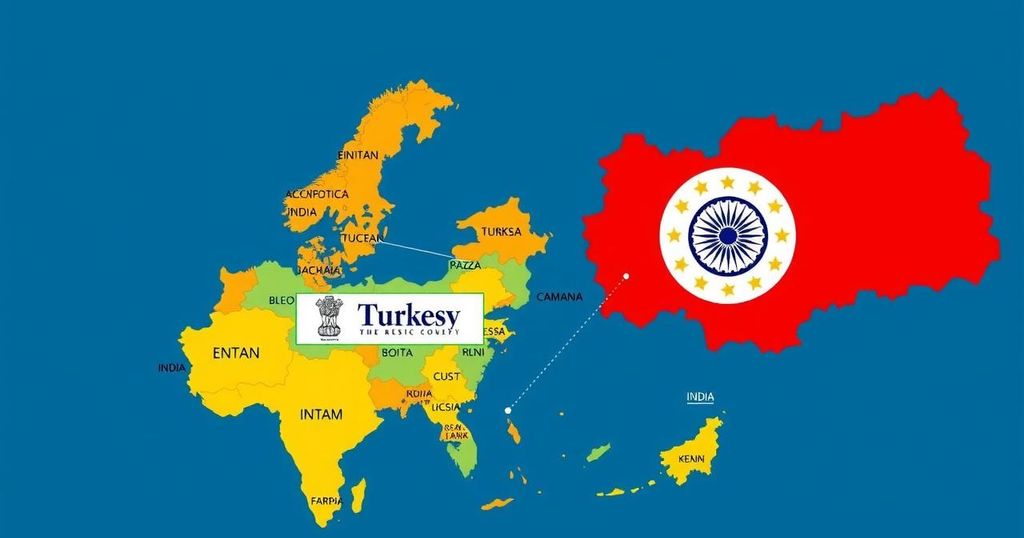Turkey’s bid to join the BRICS bloc has been rejected by India, preventing consensus among existing members for new admissions. India’s objection was rooted in Turkey’s close relationship with Pakistan. The BRICS group, which recently welcomed several countries, has decided to hold off on further expansion at this time. President Erdoğan’s attempts to increase Turkey’s global influence reflect a broader strategy to shift away from traditional Western affiliations.
Turkey’s aspiration for membership in the BRICS bloc has encountered a significant setback following India’s rejection of its application. This decision stems from Turkey’s established rapport with Pakistan, which has raised concerns among current BRICS members. Consequently, the collective consensus required for Turkey’s admission was not attained, leading to the group’s decision to refrain from welcoming any new members in the foreseeable future. Reports from BILD, a well-respected German publication, indicate that India explicitly articulated its objections based on Ankara’s close ties with Islamabad. The BRICS summit, attended by state and government leaders, formalized the decision to stagnate the expansion of the bloc, limiting its membership to the existing countries. Recently, BRICS welcomed Iran, Egypt, Ethiopia, the United Arab Emirates, and Saudi Arabia, while Turkey, along with Azerbaijan and Malaysia, submitted their applications for inclusion. Turkey’s initiative to join BRICS was officially documented on September 2, reflecting its intent to enhance its global influence and establish relationships beyond those cultivated with its traditional Western allies. According to a report from Bloomberg, the Erdoğan administration perceives a shifting geopolitical landscape favoring emerging economies over developed nations. President Erdoğan attended the 16th BRICS summit on October 24, invited by Russian President Vladimir Putin. In his address, he discussed pressing global issues, including the violence in Palestine and a recent attack in Turkey that resulted in five fatalities. The BRICS, initially formed by Brazil, Russia, India, and China in 2006, aims to bolster the participation of developing nations in global affairs. The addition of South Africa in 2011 transformed BRIC into BRICS. The organization’s overarching objective is to represent the interests of the global East and South, standing in contrast to the influences of the U.S.-led Western bloc. A common agenda among its members includes advocating for necessary reforms in institutions such as the International Monetary Fund, the World Bank, and the United Nations. Although Russia was the founding leader of BRICS, China’s growing economic and political power has positioned it at the forefront of the organization.
The BRICS coalition serves as a crucial platform for emerging economies, developed to amplify their voice and influence in international relations. The group’s mission is rooted in advocating for the interests of the Global South, which often feel marginalized by Western-led initiatives. With India’s decision to veto Turkey’s application, the dynamics within BRICS reflects the complexities of international alliances and the geopolitical landscape influenced by long-standing relationships between member states and their allies. The ongoing evolution of BRICS, especially with its recent member additions, highlights the delicate balance of power and influence as it navigates the challenges posed by established Western norms.
In conclusion, Turkey’s bid to join BRICS has been thwarted by India’s rejection, which was primarily guided by concerns over Turkey’s ties with Pakistan. The lack of consensus among existing BRICS members further solidifies the group’s current stance of not admitting new members. This incident underscores the intricate interplay of international relationships and shifting geopolitical priorities, particularly as countries seek to expand their influence beyond traditional alliances.
Original Source: www.duvarenglish.com






